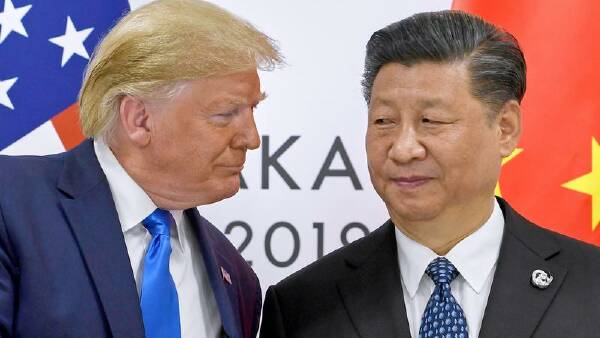
President Donald Trump has announced a significant escalation in the ongoing trade tensions between the United States and China. Effective from November 1, 2025, the United States will impose a 100% tariff on Chinese exports, a move that follows China’s recent export restrictions on rare earth minerals critical for technology and manufacturing.
In a post on his Truth Social platform, Trump stated, “Based on the fact that China has taken this unprecedented position, and speaking only for the USA, starting November 1, the United States of America will impose a Tariff of 100% on China, over and above any Tariff that they are currently paying.” He also indicated that new export controls would be implemented on “any and all critical software.”
This announcement came in response to China’s expanded export limitations on rare earth elements, which are essential for various industries, including technology. Trump’s remarks signal a significant shift in U.S.-China relations, raising concerns about the potential impact on global markets and economic stability.
The timing of Trump’s statement is crucial, as he is scheduled to meet with Chinese President Xi Jinping in approximately three weeks in South Korea. Trump’s critical tone on social media suggests he is reconsidering the meeting, expressing frustration over what he perceives as China’s attempts to leverage its position in the global economy. Beijing has yet to confirm the meeting between the two leaders.
The implications of Trump’s tariff announcement extend beyond mere trade policy. It raises questions about the sustainability of the economic detente that has existed between the world’s largest factory, China, and its largest consumer, the United States. Markets reacted swiftly to the news, indicating a potential downturn as uncertainty looms over the prospects for future trade negotiations.
Analysts suggest that this latest development could strain diplomatic relations further and complicate any efforts to find common ground. The imposition of a 100% tariff could affect a wide range of goods, increasing prices for American consumers and potentially leading to retaliatory actions from China.
As tensions escalate, the international community is closely monitoring the situation for any signs of resolution. The dynamics of U.S.-China relations could have far-reaching consequences not only for both nations but also for global trade patterns in the years to come.
In light of these developments, businesses and consumers alike are preparing for potential disruptions in supply chains and market fluctuations. The outcome of this trade dispute remains uncertain, but the stakes are undeniably high for both nations and the global economy.







